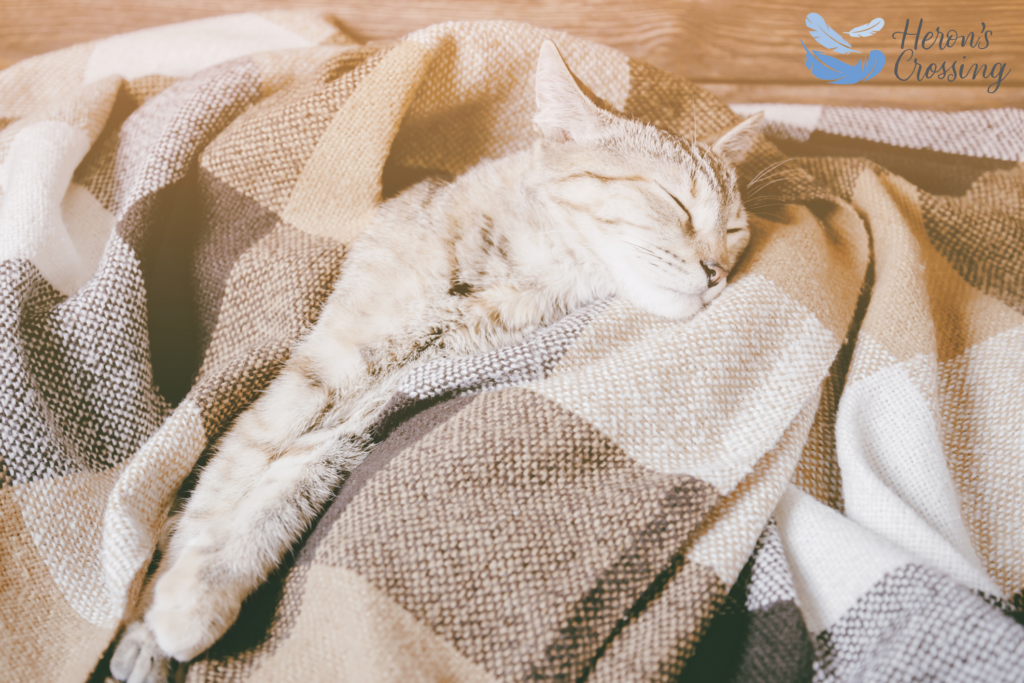Old age carries a lot of health complications for cats. As a senior cat’s body is fighting to maintain equilibrium, the stress of cold, wet winter weather makes it more difficult to bear.
Cats tend to lose a lot of weight and muscle mass as they become older. They are unable to be as active, or to keep themselves insulated as well as before. Yet, we are all trying to keep the thermostat and our utilities bills to a minimum. Here are some suggestions to help:
- Walk barefoot to discover cold or drafty places along the floor, and remedy those spots.
- Create a sleeping area in a sunny space, or a window seat to watch squirrels or a bird feeder.
- Provide cozy, plush cat beds in favorite sleeping areas with a baby blanket to snuggle in.
- Get some deeply textured blankets such as sherpa or heavy cable knit for kitty to knead or to snooze in.
- Pet beds with thermal insulation help to trap and reflect your pet’s own body heat.
- Electrically heated pet beds have heating pads with a lower setting than human heating pads, that is said to be safe for pets, but should not be left on for long periods or when you’re away.
- Hooded pet beds help to conserve inside warmth and still allow your cat to enjoy open areas with the family.
- Include a cozy, enclosed, carpeted ‘nesting’ place or blanketed basket in a closet where your kitty can feel secure and comfortable.
- Put the litter box in a warmer location in the house. They hate cold bathrooms, too.
- Make sure the litter box has a low step-in for cats who have arthritis or unsteady walking. They will experience additional joint stiffness in winter.
- Use a home humidifier to help your cat breathe more easily, plus drinking water that is fresh and always available, because home heating is dehydrating. Central heat often dries the air.
- Serve more wet food. Add yummy fish oil for a good coat and less achy joints.
- Play daily for a few minutes to keep your kitty exercising gently, warming the circulation.
Cats are most comfortable in warm weather close to 80 degrees. Experts say the thermostat should be set at no less than 70 degrees for a cat to live without discomfort. They begin to experience problems in the mid-60’s. A senior cat will need to be provided with extra warmth to stay in the 70 to 80 degree range as much as possible.
- Watch for cold noses and cold paws. Cuddling is called for.
- If you see shivering, stiffness, depression and lethargy with limpness or weakness, dilated pupils, a low heart rate or slow breathing, it’s necessary to take your cat to the vet immediately. These are signs of being unable to maintain enough body temperature to survive.
Keep your little old friend warm, comfortable and happy during the cold weather. Hopefully it won’t be long before you two are enjoying a warm spring together.
Heron’s Crossing provides end-of-life care for pets in the Metro Atlanta area. In-home appointments with compassionate vets are available. If you’d prefer a home-like setting away from your home, our Decatur office is also available by appointment.

